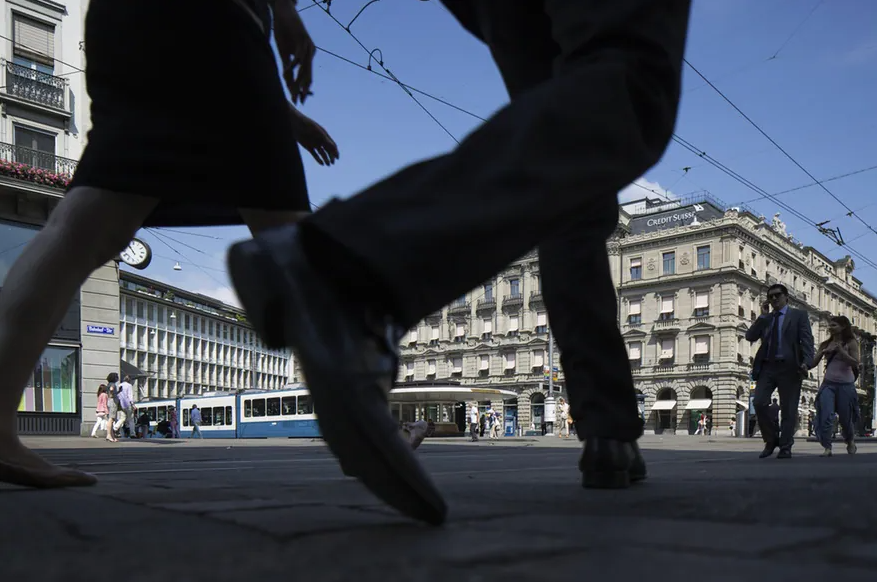The number of outstanding mortgages increased by 3% on last year Keystone / Urs Flueeler A report by the leading Swiss bank UBS has found an increased risk of a real estate bubble forming in Switzerland’s housing market. The UBS Swiss real estate bubble index has risen from 1.78 to 1.90 points, in the second quarter of 2021, remaining in the ‘risk zone’, according to a report published on Tuesday. The increase is driven by a rapid rise in prices in the Swiss residential housing market, as well as growth in the household mortgage volumes. According their analysis, the price of residential housing rose 5.4%, the largest increase in eight years. This rise was not matched by a similar rise in income. While the average price of residential property was 6.5 times annual
Topics:
Swissinfo considers the following as important: 3.) Swissinfo Business and Economy, 3) Swiss Markets and News, Business, Featured, newsletter
This could be interesting, too:
Nachrichten Ticker - www.finanzen.ch writes Die Performance der Kryptowährungen in KW 9: Das hat sich bei Bitcoin, Ether & Co. getan
Nachrichten Ticker - www.finanzen.ch writes Wer verbirgt sich hinter der Ethereum-Technologie?
Martin Hartmann writes Eine Analyse nach den Lehren von Milton Friedman
Marc Chandler writes March 2025 Monthly
A report by the leading Swiss bank UBS has found an increased risk of a real estate bubble forming in Switzerland’s housing market.
The UBS Swiss real estate bubble index has risen from 1.78 to 1.90 points, in the second quarter of 2021, remaining in the ‘risk zone’, according to a report published on Tuesday.
The increase is driven by a rapid rise in prices in the Swiss residential housing market, as well as growth in the household mortgage volumes.
According their analysis, the price of residential housing rose 5.4%, the largest increase in eight years. This rise was not matched by a similar rise in income.
While the average price of residential property was 6.5 times annual income before the Covid-19 pandemic, it is now estimated at around 7.1 times annual income, the report says. This ensures houses are becoming increasingly unaffordable.
The number of outstanding mortgages also increased by 3% on last year. While growth rates remain below the all-time high, the report warned that further acceleration would be cause for concern.
Falling rents
While house prices have risen, the rent being received by landlords has dropped by 3.2% in the last year. This constitutes the steepest drop since 1996, according to the report.
The widening gap between the cost of residential property and the cost of rental means that the achievable returns of landlords have fallen to record lows.
Despite this, investment in residential property remains high. The report says that increasing property prices have become the main motivation behind purchases.
While residential bubble index figures are currently high, the report predicts that the post-Covid economic recovery will decrease the index down to 1.69 by the fourth quarter of 2021, below the risk zone.
Despite this, post-pandemic imbalances within the residential housing market are expected to be considerably higher than before.
Tags: Business,Featured,newsletter









